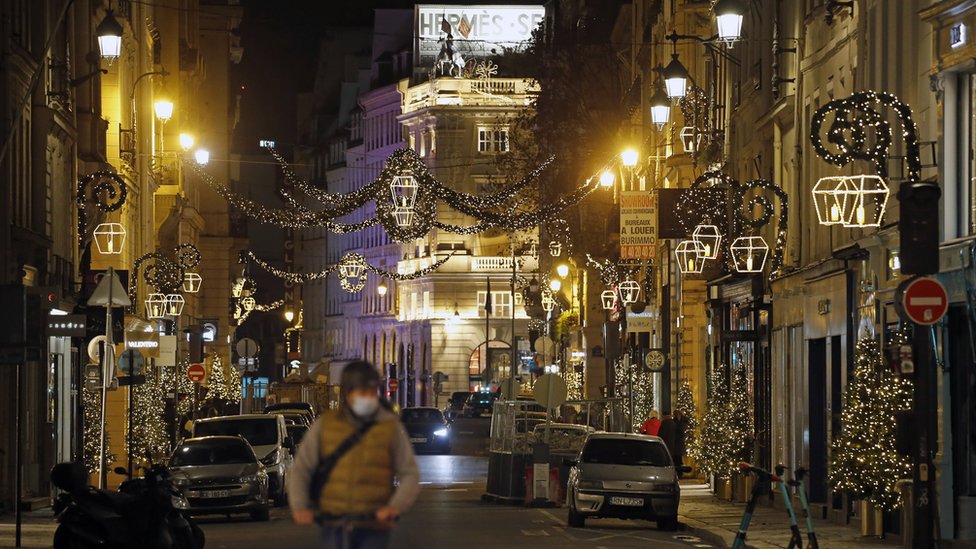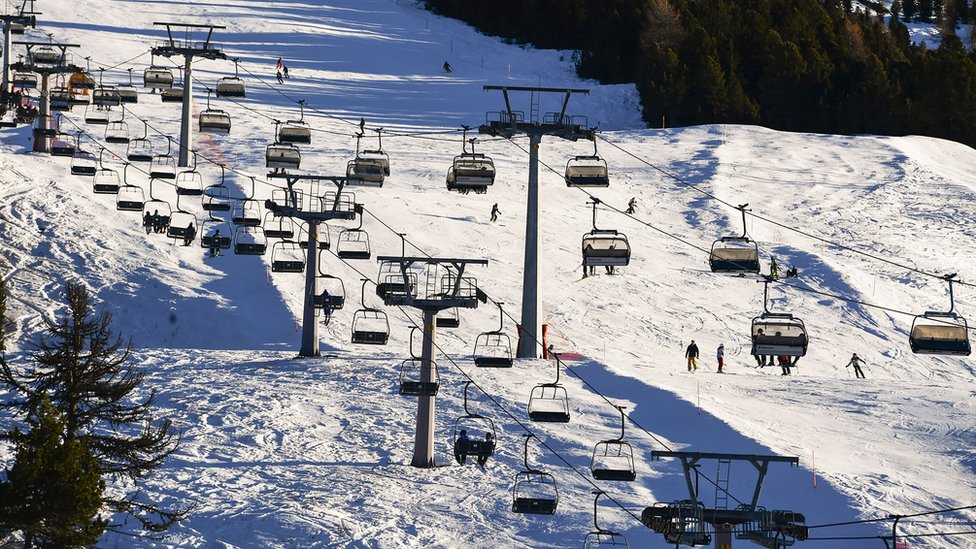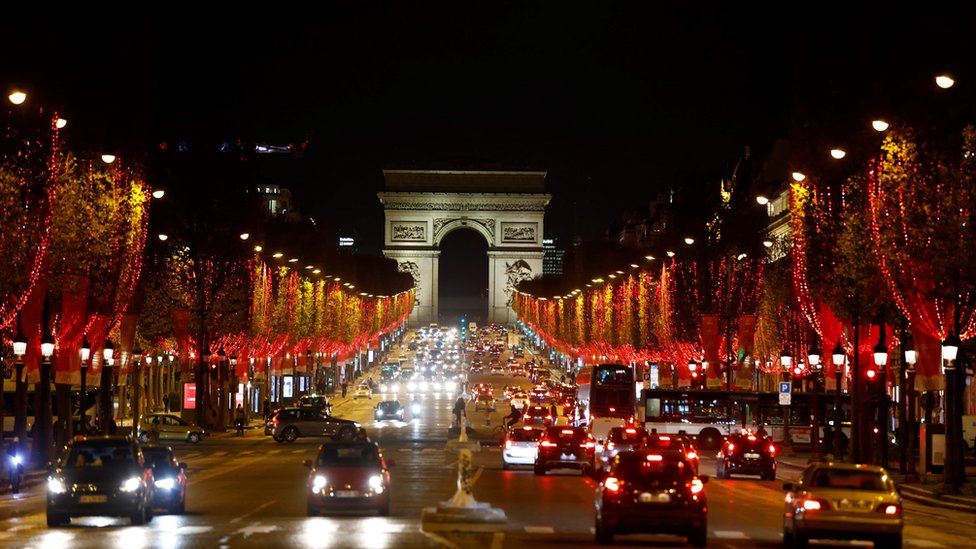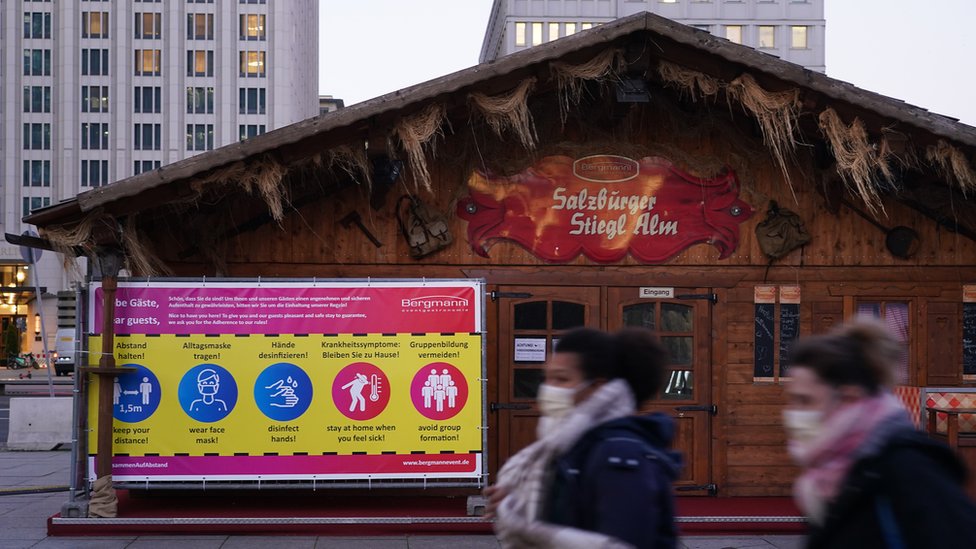
So with Christmas fast approaching, governments are having to make tough decisions on whether to ease restrictions in time for the holiday period.
Here's a breakdown of what's been announced so far.

Italy: Warnings against festive holidays
Many Italians head to the ski slopes over Christmas and New Year, but Prime Minister Giuseppe Conte has warned against these traditional breaks. "We cannot afford it," he said.
It means popular ski resorts in the Alps and Dolomites are likely to lose out on billions of euros in festive revenue.
Mr Conte is looking for a European consensus, on keeping the ski resorts shut and on other measures too.

"I think it is a European problem," Mr Conte told La7 television. "If Italy decided to shut down all its ski lifts without any support from France, Austria and the other countries, then Italian tourists would risk going abroad and bringing the [virus] back home." France's ski resorts will also stay shut and the leader in the German state of Bavaria backs temporary closures, but Austrian tourism officials believe they can offer safe holidays once restrictions are eased on 7 December and they disapprove of the Italian plan. Swiss resorts are already open.
Italy is currently seeing the highest number of deaths since the end of March and the prime minister has told Italians to expect a "more sober Christmas, without Christmas Eve gatherings, hugs and kisses".
Many Italian regions are under partial lockdown and travel between them is restricted. These measures will remain in place until 3 December, but reports suggest an emergency decree may see the rules relaxed after this date.
The exact details of the decree are still being discussed by ministers. The beloved Italian Christmas market, however, has already been banned.
But it's not all bad news: Mr Conte has reassured children that
Babbo Natale (Father Christmas) will definitely be visiting as he is exempt from global travel restrictions. Phew.France: Travel restrictions lifted over Christmas
After weeks of national lockdown, President Emmanuel Macron has restrictions will start being eased from 28 November. But the majority of lockdown measures will stay in place until just ahead of the festive break on 15 December.
Shops, theatres and cinemas will reopen in time for Christmas and people will be able to visit their families over the festive period. "We will be able to travel without authorisation, including between regions," Mr Macron said in a TV address.
It's worth noting that France has been under a second national lockdown since late October. But on 15 December, this will be replaced by a nationwide curfew from 21:00 to 07:00. The curfew won't apply on Christmas Eve and New Year's Eve, however.

Restaurants and schools will not reopen until at least 20 January, and this is dependent on daily cases dropping below 5,000. Bars, cafes and nightclubs are closed indefinitely.
Religious services will be free to take place from 28 November with a limit of 30 people.
The decision to keep France's hugely popular ski resorts shut has come as a huge disappointment, with local mayors complaining of months of work wiped out. Mr Macron said they could reopen in January "under favourable conditions" but echoed the Italian prime minister's push for a European agreement.
Germany: A cap on social gatherings
Draft guidelines agreed by the leaders of Germany's 16 states aim to limit social gatherings over Christmas, and are set to be formalised after a video conference with Angela Merkel later on Wednesday.
From 1 December, two households and a maximum of five people will be able to meet. Children aged under 14 are not included in this limit.
But there could be a temporary easing of the rule with up to 10 people able to meet between 23 December and 1 January. The limit of two households may also be increased.
The plan calls for discussions "with religious communities on measures to reduce contacts at religious services".

Germany's "lockdown light" would continue until 20 December. Bars, restaurants and entertainment venues are closed but schools and shops are open. This is expected to be extended over the festive period.
Most major Christmas markets have already been cancelled, but some local ones are outlining plans to go ahead on a reduced scale.
As for New Year, fireworks displays have been cancelled while letting them off in the street is likely to be discouraged.
Spain: Terrace parties and limited gatherings
The Spanish government is planning a "different" festive period with a limit of six people allowed at parties, reports say.
It is set to recommend that social gatherings in the run-up to Christmas be held on restaurant terraces or other outdoor locations.
Spanish families also traditionally celebrate the Feast of the Three Kings with a parade on the evening on 5 January and the government will recommend that celebrations do not take place.
The plan also recommends ventilating indoor spaces and maintaining social distancing where necessary. But more broadly, Health Minister Salvador Illa has said "nothing is set in stone".
"We need to find consensus about [Christmas restrictions]. When it's decided we will announce the measures," he said.
Catalonia's government is hoping to allow gatherings of up to 10 people for Christmas. "We will make our own decisions," a spokeswoman for the region said.
While in Madrid, officials are asking the government to approve a mass testing programme at pharmacies in the run-up to Christmas to allow people to meet safely over the festive period.
World - Latest - Google News
November 25, 2020 at 06:59PM
https://ift.tt/364nL3d
Coronavirus: How Europeans are preparing for Christmas and New Year - BBC News
World - Latest - Google News
https://ift.tt/2SeTG7d
https://ift.tt/35oCZy1
Bagikan Berita Ini














0 Response to "Coronavirus: How Europeans are preparing for Christmas and New Year - BBC News"
Post a Comment